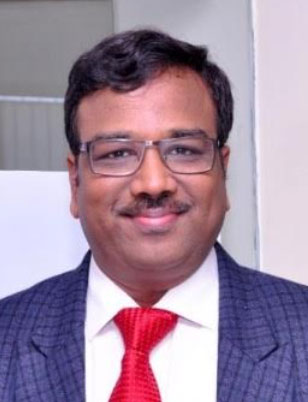
COMMENT | Agarwal Rajesh | Farmers, teachers, and businesses have today incorporated digital support in their operations, which translates to timely and fast access to services for those who subscribe to them. Today, a farmer can operate an e-shop among other digital platforms, where they interact with suppliers and other stakeholders.
Many farmer applications that aid farmers to order agricultural inputs, map their farm or land for better decision-making as well as, selling and buying produce, need a stable internet connection to facilitate smooth operations. Commercial farmers for example need a dedicated, faster internet connection for green house condition monitoring, to feed the growing population.
With the advance in technology and support of the 5G Network, manufactures are able to automate processes. For example, a bottling company is able to have real time monitoring, as well as conduct maintenance routines at each stage of production to ensure quality of the end product.
Presently, our day-to-day activities from how we work and how we relate with one another are greatly influenced by our ability to stay connected to an even faster network that will support affordable communication, and solutions in our everyday routines. That is what telecoms are for.
The digital transformation has presented numerous opportunities that can aid social economic growth of any given country or region. Deliberate, and appropriate investments must be made to ensure that end users get even better experiences of services, solutions and products.
When telecommunications masts are positioned in key locations within an area where there is high usage activity like in Towns or Cities, it enables the community within that area to stay connected through smartphones, the internet, and conduct other actives that rely on internet connectivity. The design and deployment of these sites continues to change to minimize space usage while delivering superior reliability.
Overtime, the wireless generation has gone through various transitions from the first-generation network (1G) to the current 5G which is still being deployed in some countries across Africa, but it’s being used in other countries like South Korea, The United States, Canada, Australia, Saudi Arabia.
5G is the 5th generation mobile network that enables a new kind of network that is designed to virtually connect everyone and everything together including machines, objects, and devices at very high speeds. It delivers higher multi-Gbps peak data speeds, more reliability, massive network capacity, increased availability, and a more uniform user experience to more users.
At the start of March 2023 we announced that Airtel Uganda is 5G ready. The technical teams have completed the critical tests needed to deliver this service, once the regulator allocated the required spectrum. This being a new technology, the technical skills transfer will be important for the development of Uganda’s digital future.
As a business, we embarked on a journey to improve our infrastructure so that we can support businesses and individuals to have access to digital services by making deliberate investments towards boosting our connectivity through switching our masts to a 4G coverage that is reliable and fast.
Since we made this commitment, we have completed 5G tests and are ready to deliver on its application once the spectrum is allocated. In the immediate 12 months, we have added over 365 masts to support the existing network bands. This is part of the growing physical and virtual infrastructure of Airtel’s 100% 5G ready network that covers the country border to border.
The move is part of Airtel’s pledge to build a robust smartphone network, a platform which is key in growing digital and financial inclusion in Uganda.
In its humble and subtle contribution to national transformation, an agile network like Airtel Uganda enables farmers to transform their operations in sourcing inputs, farm record keeping and market access.
Teachers and students are able to use online platforms to teach and expand their learning experiences, business owners who can use voice, Airtel Money and data or internet options on Airtel to operate their businesses more efficiently.
The 2022 2nd Quarter Uganda Communications Commission (UCC) report highlights that from April to June 2022, the sector recorded a total of 232,000 new broadband subscriptions totaling 23.7 million broadband subscriptions in the country. The 232,000 new broadband connections are 34% of total new telephone connections.
*****
 Agarwal Rajesh is the Networks Director at Airtel Uganda
Agarwal Rajesh is the Networks Director at Airtel Uganda
 The Independent Uganda: You get the Truth we Pay the Price
The Independent Uganda: You get the Truth we Pay the Price



Hi
What is your guest post price
but we need a do- follow link also.
what is the price thank
I want a permanent post.